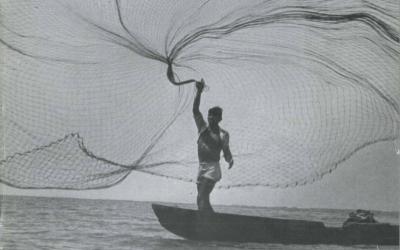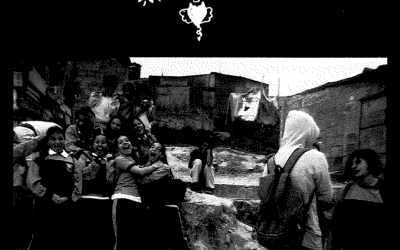Fundación Social
Thoughts Against the Bullets
Colombia—well you all know the statistics are quite famous: if in the United States the same number of homicides were to be proportionally committed as in Colombia, 1.5 million people per year would be dying rather than 28,000 people! In our country, 10 tragedies, each equivalent in loss to September 11th, are produced each year. How can Harvard help in a genocide of this magnitude? With that question in mind, I came to Harvard to participate in a dialogue with a group of world-renowned professors.
As a graduate student in the social sciences (philosophy, history, and economics), I have been involved with poor neighborhoods since I first visited one at age 11. I have never stopped going back. For the past 22 years, I’ve been working in the social service area of a Colombian non-governmental organization called “Fundación Social” that strives to provide support in the struggle to overcome poverty and violence. We provide ways to create social organizations, education for civilians, work training, and an improvement in quality of life—all through different processes of Developmental Participatory Strategizing and Planning. These programs are active throughout Colombia.
With this extensive experience, one might ask why I would go to this conference at Harvard. It is because I think that the Harvard academia has put forth their best effort to become more involved in solving the problems of poverty and violence in various parts of the world. From this effort, we get important lessons and valuable analytical and procedural modules. This prompted me to get involved with the Harvard-Colombia dialogue, which hopefully will become an ongoing one. Of course it must be noted that the Colombian reality, in many cases, goes beyond analytical efforts and action-taking proposals—this constitutes a great opportunity for academia. If solutions for some of Colombia’s problems are found, then significant advancements will be made in the social sciences, and above all, in the process of humanizing the entire planet. This monumental mess that we have created of poverty, guerrillas, paramilitaries, corruption, social indiscipline, and drug trafficking—constituting a painful black hole that takes a toll of 30,000 dead people every year—is not easy to untangle. We need resources but we also need ideas and solidarity. From Harvard we especially hope to receive the latter two.
Rodrigo Quintero has held a variety of roles in community and micro-enterprise projects within the Fundación Social, a diverse not-for-profit organization of the Society of Jesus.
Related Articles
Editor’s Letter
This is a celebratory issue of ReVista. Throughout Latin America, LGBTQ+ anti-discrimination laws have been passed or strengthened.
Editor’s Letter: Colombia
When I first started working on this ReVista issue on Colombia, I thought of dedicating it to the memory of someone who had died. Murdered newspaper editor Guillermo Cano had been my entrée into Colombia when I won an Inter American…
Photoessay: Shooting for Peace
Photoessay: Shooting for PeacePhotographs By The Children of The Shooting For Peace Project As this special issue of Revista highlights, Colombia’s degenerating predicament is a complex one, which needs to be looked at from new perspectives. Disparando Cámaras para la...



